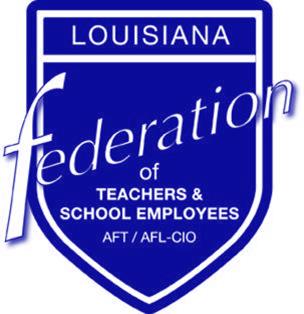Audit slamming voucher schools is no surprise, LFT president says
(Baton Rouge – December 17, 2013) A legislative auditor’s report criticizing state oversight of the controversial school voucher scheme was foreseen by the Louisiana Federation of Teachers more than a year ago, Federation President Steve Monaghan said today.
“I do not hate to say we told them so because we did just that,” Monaghan said. “The state education board and department of education had ample warning that their accountability standards were inadequate.”
Monaghan was responding to a report by Legislative Auditor Daryl Purpera saying that the state does not properly monitor the use of public funds or the academic standards of private and religious schools that accept state vouchers.
“We realized in July of 2012 that rules adopted by BESE couldn’t pass muster, and requested a public hearing in accordance with the Administrative Procedure Act,” Monaghan said. “In October, BESE finally agreed to the hearing as required by law. But sadly, that hearing was a mockery. We were limited to just 10 minutes to present more than a dozen specific, constructive recommendations to make vouchers more accountable to parents and taxpayers.”
Other groups that had come to the hearing prepared to offer suggestions were given just two minutes each to testify, Monaghan said.
Instead of giving serious attention to the deficiencies in BESE’s voucher rules, Monaghan said, the hearing degenerated into a pep rally for vouchers. Numerous supporters were allowed to praise the voucher program without even mentioning the subject of the hearing, which was Bulletin 133 (Criteria for School Participation in the Student Scholarships for Educational Excellence Program).
Almost immediately after that faux hearing, Monaghan recalled, the Louisiana Department of Education released a statement praising those who had attended the meeting in support of vouchers, even though the purpose of the meeting was not to debate educational philosophy.
“This sent a very clear signal,” Monaghan said. “The mission of the department of education was to champion vouchers and privatization by any means necessary, and that’s why more than a year later we have audit report stating the obvious, and what we had attempted to fix in October 2012.”
In light of this audit report and BESE’s refusal to consider reasonable accountability for the $40 million-plus voucher program, Monaghan said, it will be up to the State Legislature to pass appropriate legislation requiring proper oversight in order to protect students, parents, and taxpayers.
– See more at: http://la.aft.org/press/lft-had-warned-state-about-voucher-accountability#sthash.Vwf0rYvn.dpuf












